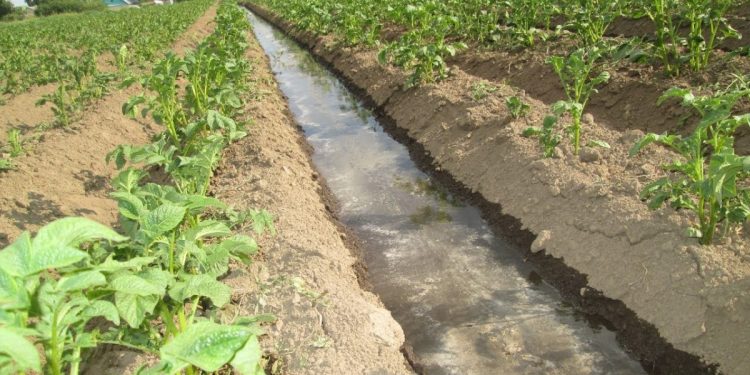#SustainableSpuds #SurfaceIrrigation #Potatoes #WaterConservation #IrrigationOptimization
Potatoes are a staple crop that are widely cultivated across the globe, but they require a significant amount of water to grow successfully. Surface irrigation is one of the most commonly used methods for irrigating potato fields, but it can be inefficient and result in water waste. In order to promote sustainability in potato farming, optimizing surface irrigation methods is crucial.
Surface irrigation can be done through different methods such as furrow, border or basin irrigation, each with its own advantages and disadvantages. In furrow irrigation, water is applied between rows of potato plants through small channels or furrows. Border irrigation involves creating a border around the field and filling it with water, allowing it to infiltrate into the soil. Basin irrigation involves creating small depressions in the field and filling them with water.
To optimize surface irrigation for potatoes, it’s important to consider factors such as soil type, climate conditions, and water availability. For example, in areas with high clay content, furrow irrigation may not be effective as water can quickly pool in the furrows and lead to waterlogging, while border or basin irrigation can be more effective. In contrast, in areas with sandy soil, furrow irrigation can be more effective as the water can penetrate the soil more easily.
One approach to optimizing surface irrigation is to use modern technology such as soil moisture sensors, weather stations, and irrigation scheduling software. These tools can help farmers determine the optimal time and amount of water to apply to their potato fields, reducing water waste and ensuring that the crops receive the necessary amount of water to grow.
Overall, optimizing surface irrigation for potatoes is crucial for promoting sustainability in potato farming. By using the right irrigation method and modern technology, farmers can reduce water waste, improve crop yield and quality, and promote a more sustainable future for potato farming.







